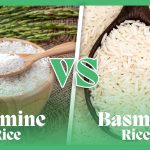Breakfast, acclaimed as the fundamental meal of the day to fuel your body with nutritional richness, asks for more than your routine culinary choices. Today, we begin our bright and sunny morning with freshly made nourishing pancakes, topped with healthy ingredients for an extra burst of taste and health.
You don’t have to feel guilty while eating your favorite fluffy and moist pancakes every day. Let us shift the paradigm from the traditional pancake choices and extend our hands towards more nutritious and healthy ingredients to create a heavenly and nourishing morning meal.
Get ready to flip the script from an ordinary to an extraordinary experience where health meets taste and create a wonderfully nutritious plate of pancakes!
What are pancakes?
A dish is so well known that it requires no introduction. However, we’ll start by discussing what traditional pancakes are.
Pancakes are fluffy, flat, circular cakes prepared from a batter made of eggs, flour, milk, and sugar and fried on a hot pan greased with little oil or butter. Known for their use as a celebratory and festive food, the history of pancakes dates back to 1000s of years!
According to experts, pancakes go as far back as 30,000 years during the Stone Age and were discovered in the stomach of Otzi the Iceman. Ancient Greeks and Romans made pancakes from wheat flour, olive oil, honey, and curdled milk. Before they became an American classic, pancakes were called different names like Indian cakes, hoe cakes, johnny cakes, buckwheat cakes, and more.
Today, every culture has its version and recipe of pancakes, all equally delicious and appetizing.

Whole wheat pancakes vs. regular pancakes vs. boxed pancake mixes
There’s quite a dilemma surrounding the health implications of daily consumption of pancakes.

Regular pancakes:
The main ingredient of the traditional pancakes is all-purpose flour, a highly processed flour with most of its beneficial nutrients removed and contains only the endosperm. The pancakes made from refined flour are lighter and fluffier in texture and have a milder taste. Refined flour is considered “empty calories” as it has been stripped of dietary fiber and essential vitamins and minerals.
Refined flour pancakes are just empty calories that not only contribute to obesity but also cause a sudden spike in blood glucose owing to their high glycemic index (GI). Furthermore, regular consumption of refined carbohydrates increases triglycerides that may put one at risk of cardiovascular complications.

Whole wheat pancakes:
Carbohydrates are not the culprit! It’s the extra processing of the food products to remove the complex carbohydrates out of the way that makes them unhealthy.
But what if we slide a little out of the traditional ingredient and focus on the healthier counterpart of refined flour? It’s whole wheat flour!
Whole wheat flour is the healthier version of the all-purpose flour with less processing and more nutrients. It has its bran, germs, and endosperm intact and is prepared by grinding the whole kernel into powder. Whole wheat pancakes are rich in dietary fiber, protein, healthy vitamins, and minerals, including iron and potassium.
Though it gives a less fluffy texture to the pancakes, the health benefits definitely outweigh the undesirable texture. Whole wheat pancakes have a dense and chewy texture while taste nutty and hearty.

Boxed pancake mix:
Among the famous pancake types, a more common and America’s go-to option is boxed pancake mix. Loved by adults and kids alike, boxed pancakes are the easiest option anybody can make. Toss some pancake mix in the bowl, water, chocolate chips, and ta-da! You have your pancake batter all ready.

But are they healthy?
Boxed pancakes are empty calories that turn into glucose quickly and increase the postprandial glucose level. In addition, the added sugars like dextrose and artificial flavors render them unsuitable to start your day with.
So, it is true that most of the pancake mixed boxes available and most of the pancakes we make at home are not the healthiest of the options, but there is a way to enjoy your favorite breakfast with slight changes. Stay with us to find out!
Nutrient composition:
Below is a side-by-side comparison of three popular pancake types. Let’s break down all the nutrients and discuss them one by one:
Energy:
According to USDA, 1 wholewheat pancake of 44 grams provides 91.5 kcalories of energy, slightly higher than the energy provided by 1 regular pancake of 38 g i.e. 86.3 kcalories. The boxed pancakes of 45 release more energy than the previous two types, which is 154 calories.
Proteins:
Coming towards the comparison of proteins, the whole wheat pancakes provide more protein (3.74 g) than the regular pancakes (2.43 g). The boxed pancake mix incorporates more protein (4.54 g) than the previous two, but the difference lies in their amino acid composition.
Whole wheat pancakes have more essential amino acids followed by regular and boxed pancake mix.
Total fats:
As evident from the data, the total fat content of the boxed pancakes is lower (1.41 g) than the other two. However, whole wheat and regular pancakes do not contain trans fatty acids and are abundant in polyunsaturated and monounsaturated fatty acids.
Carbohydrates:
The carbohydrate content of boxed pancakes is higher (31.5 g), which contains more added sugars in the form of corn syrup and dextrose. Whole wheat pancakes have high dietary fiber content beneficial for better digestion.
Minerals:
The mineral content of whole wheat pancakes is higher than the other two, with an abundance of calcium, iron, magnesium, phosphorus, potassium, zinc, copper, manganese, and selenium.
Vitamins:
Whole wheat pancakes are a rich source of vitamins, providing both fat-soluble and water-soluble vitamins, whereas boxed pancakes have the highest amount of Niacin (2.15 mg).
| Nutrients | Whole wheat pancakes (1=44 g) | Regular pancakes (1= 38 g) | Boxed pancake mix (3 4 inch= 45 g) |
|---|---|---|---|
| Energy | 91.5 kcal | 86.3 kcal | 154 kcal |
| Protein | 3.74 g | 2.43 g | 4.54 g |
| Total fats | 2.86 g | 3.69 g | 1.41 g |
| Saturated fats | 0.77 g | 0.806 g | 0.526 g |
| Monounsaturated fatty acids | 0.766 g | 0.939 g | 0.333 g |
| Polyunsaturated fatty acids | 1.06 g | 1.69 g | 0.473 g |
| Trans fatty acids | – | – | 0.005 g |
| Carbohydrates | 12.9 g | 10.8 g | 31.5 g |
| Dietary fiber | 1.23 g | – | 1.04 g |
| Added sugar | – | – | 6.11 g |
| Calcium | 110 mg | 83.2 mg | 150 mg |
| Iron | 1.37 mg | 0.684 mg | 1.75 mg |
| Magnesium | 20.2 mg | 6.08 mg | – |
| Phosphorus | 164 mg | 60.4 mg | 241 mg |
| Potassium | 123 mg | 50.2 mg | 61.2 mg |
| Sodium | 252 mg | 167 mg | 451 mg |
| Zinc | 0.458 mg | 0.213 mg | – |
| Copper | 0.035 mg | 0.019 mg | – |
| Manganese | 0.682 mg | 0.076 mg | – |
| Selenium | 8.54 µg | 5.66 μg | – |
| Vitamin C | 0.22 mg | 0.114 mg | 0.045 mg |
| Thiamine (B1) | 0.087 mg | 0.076 mg | 0.45 mg |
| Riboflavin (B2) | 0.233 mg | 0.107 mg | 0.188 mg |
| Niacin (B3) | 1.02 mg | 0.597 mg | 2.15 mg |
| Pantothenic acid (B5) | 0.228 mg | 0.154 mg | – |
| Vitamin B6 | 0.048 mg | 0.017 mg | – |
| Folate | 12.8 µg | 14.4 μg | 54.9 μg |
| Vitamin B12 | 0.128 mg | 0.084 μg | – |
| Vitamin A | 99.4 IU | 74.5 IU | 2.25 IU |
Role in human nutrition:
Whole wheat pancakes are rich in all essential macro and micronutrients and offer a myriad of health benefits. Some of the prominent benefits are discussed below:
Hemoglobin production:
One whole wheat pancake provides about 1.37 mg of iron. The main function of iron is the production of hemoglobin, a protein in the red blood cells that carry oxygen from the lungs to all body parts. Moreover, iron is also essential for the immune system, which will help fight off certain diseases.
Bone strength:
Calcium, widely known for its bone-strengthening properties, is in abundant amounts in whole wheat pancakes. In addition to its classic functions, calcium is essential for the proper functioning of nerves and muscle cells and may also control blood pressure.
Phosphorus is another mineral essential for strong teeth and bones found in pancakes. It also regulates the energy metabolism of organs and helps produce energy in the cells.
Supports digestion:
Whole wheat pancakes have a significant amount of dietary fiber that helps in better digestion by providing bulk to food and stool and acting as food for the gut microbiota.
Increases satiety:
Whole wheat pancakes have a hearty taste and dietary fiber that keeps you full for a long time and improves satiety compared to pancakes made of refined grains.
Prevents birth defects:
Whole grains are high in folate, a vitamin responsible for healthy pregnancy. It reduces the risk of neural tube defects crucial for spine and brain development.
Prevents obesity:
Whole grains are essential for preventing obesity due to their fiber content. The high fiber adds fullness by providing bulk to the food and keeps you satiated for a long time.
Side effects:
Let’s discuss some of the adverse effects caused by pancakes:
Gluten sensitivity:
Consuming pancakes made from whole wheat and refined wheat may cause bloating in case of gluten sensitivity. Gluten is a protein in wheat that some people cannot digest and experience symptoms like gas, diarrhea, and bloating.
Added sugar:
If you consume boxed or refined wheat pancakes, you likely consume your daily recommended sugar intake in one sitting. The American Heart Association suggests consuming 25 grams of sugar for women and 36 grams for men for a healthy heart.
Allergy:
Pancakes contain common allergens such as wheat, milk, and eggs that may cause allergic symptoms upon consumption. If you’re someone who has an allergy to any of these ingredients, substitute them with a non-allergic ingredient.
How to prepare pancakes?
Pancakes are some of the easiest and quickest breakfast options that require no extra cooking talent. All you need are the easily available ingredients such as flour, sugar, milk, sugar, and some salt. But we’ll be explaining the steps you can take to make your pancakes healthy and enjoyable.
- Make pancakes from scratch and use whole wheat flour or other healthy options for a burst of nutrients, including dietary fiber, and to avoid trans fats.
- To reduce your fat intake, use a non-stick frying pan to avoid adding oil or butter for cooking,
- Instead of topping the pancakes with syrup or chocolate, use fruits like bananas, berries, and honey as your toppings.
- Decrease your consumption of pancakes from every day to once or twice a week.
Healthy alternatives to traditional pancakes:
Do you wish to add pancakes to your diet but want to give it a healthy twist? Let’s discuss some of the alternatives to wheat that you can add to pancakes:
Sweet potato pancakes:
Adding sweet potato puree and cinnamon to your traditional mix of whole wheat or refined flour, milk and egg may not only enhance the flavors of your pancakes. Still, it will also incorporate essential nutrients into your diet. Sweet potatoes are a rich source of vitamins A and C and help in healthy vision, build the immune system, and strengthen the gut.
Oatmeal pancakes:
Substituting oats with traditional wheat flour and adding bananas to your pancake batter will elevate your intake of soluble dietary fiber, beta-glucan. According to the FDA, consuming 3 grams of this fiber every day will reduce your risk of major chronic diseases.
Flaxseed pancakes:
A gluten-free option for gluten-sensitive people, flaxseeds are a rich source of dietary fiber and omega-3 fatty acids that lower blood cholesterol levels and support heart health.
Quinoa pancakes:
An ingredient rich in protein, fiber, and magnesium provides a great alternative to wheat. It helps reduce blood pressure and maintain healthy bones.
Different pancake toppings and their health impacts:
It is possible to enjoy a plate of your favorite pancakes by topping delicious and healthy toppings rather than opting for the standard syrup, chocolate, and cream toppings. Some of the healthy toppings for pancakes are:
Blueberries:
Known for their powerful antioxidant potential, blueberries contain a pigment known as anthocyanins responsible for imparting a deep color to the fruit. These anthocyanins act as antioxidants and neutralize the free radicals in the body, thereby preventing the risk of many chronic diseases.
Bananas:
A universally favorite food incorporated into tons of foods can be used as toppings for pancakes for extra nutrients, especially potassium. Potassium reduces the risk of high blood pressure, heart disease, and stroke.
Honey:
If you are a huge fan of syrup, try topping honey on your pancakes for its anti-inflammatory, antioxidant, and anti-bacterial benefits.
Cinnamon:
Try sprinkling some cinnamon on your fluffy pancakes for its role in insulin control.
Nuts:
Crush nuts like peanuts, almonds, and cashews for an extra crunch and healthy protein and fat content.
Chia seeds:
You can sprinkle a handful of chia seeds on your pancakes for improved cardiovascular health, intestinal health, and low cholesterol levels.
Cranberry sauce:
An alternative to your traditional jam, homemade cranberry sauce can not only bring sweetness but also tons of health benefits including its role in antioxidant activity, urinary tract infections, and raising HDL cholesterol levels.
In conclusion, whole wheat sets itself apart by being nutritionally dense, has a high amount of fiber, and offers tons of health benefits owing to its high vitamins and mineral content. Meanwhile, regular flour adds lightness and fluffiness to the pancakes. In the end, it all comes down to whether you prefer to consume the traditional pancakes once a week or enjoy this easy and delicious meal every day but with healthy ingredients.









